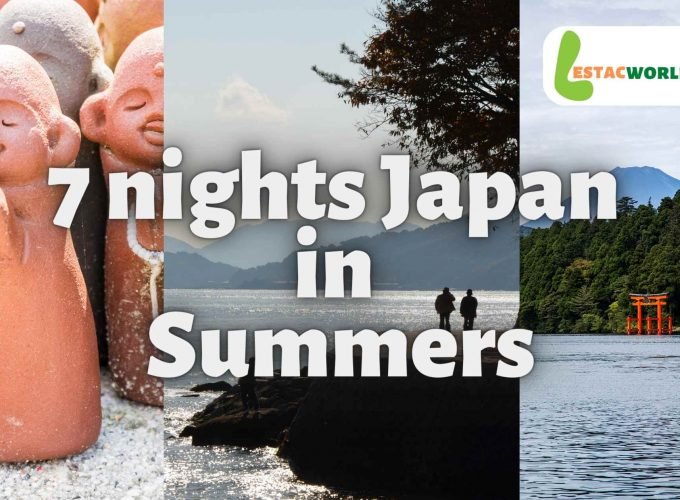About festivals in Japan
Important to know about festivals in Japan – Japan is a country with a lot of history and culture, and one way this is shown is in its many festivals. The Japanese call these celebrations “matsuri,” and they happen all year long. They are a way to mark everything from the changing of the seasons to religious events and important moments in history. Many of these celebrations go back hundreds of years and have deep roots in Japanese history and mythology. Each festival has its own traditions, music, food, and clothes, which depend on where it is held and what it is for. The Gion Matsuri in Kyoto, the Tenjin Matsuri in Osaka, and the Nebuta Matsuri in Aomori are some of the most well-known festivals in Japan. Not only do these festivals honour Japan’s rich history and culture, but they also give people a chance to get together and enjoy the festivities as a group. Also, many of these festivals attract people from all over the world, which makes them a popular place for tourists to go. Everyone who goes to a festival in Japan has a unique and unforgettable experience, from the lively music and colourful costumes to the delicious street food and bright fireworks.
Festivals are a big part of Japan’s cultural history and are a big part of how Japanese people live their lives every day. Shintoism, Japan’s native religion, which puts a lot of emphasis on the relationship between humans and nature, is where these festivals come from. Many festivals are based on agricultural or seasonal events, like planting rice, celebrating the harvest, or welcoming spring or fall. Some are based on things that happened in the past, like the start of a city or the birth of a famous person.
List of 10 most famous festivals in Japan
- Gion Matsuri – Held in Kyoto every July, this month-long festival includes a grand parade of 32 ornate floats, traditional music performances, and various food and drink stalls.
- Tenjin Matsuri – This festival is held in Osaka every July and honors Sugawara no Michizane, a deity of learning and scholarship. It features a procession of boats on the Okawa River, a fireworks display, and a reenactment of Michizane’s journey to Kyoto.
- Nebuta Matsuri – This festival is held in Aomori every August and is known for its giant illuminated paper lantern floats, traditional music performances, fireworks, and food stalls.
- Sapporo Snow Festival – Held every February in Sapporo, this festival features spectacular snow and ice sculptures created by artists from around the world.
- Kanda Matsuri – This festival is held in Tokyo every two years in mid-May and features a grand procession of portable shrines and traditional music performances.
- Takayama Matsuri – Held in Takayama twice a year in April and October, this festival features elaborate floats, traditional music and dance performances, and street food stalls.
- Awa Odori – This dance festival is held in Tokushima every August and is one of the largest traditional dance festivals in Japan, featuring thousands of dancers in colorful costumes.
- Kanamara Matsuri – Also known as the “Festival of the Steel Phallus,” this festival is held in Kawasaki every April and celebrates fertility and reproductive health.
- Tanabata Matsuri – Held throughout Japan on July 7th, this festival celebrates the meeting of two stars, Orihime and Hikoboshi, who are said to be separated by the Milky Way.
- Jidai Matsuri – Held in Kyoto every October, this festival features a grand procession of people dressed in historical costumes representing different periods in Kyoto’s history.
Frequently asked questions about Festivals in Japan ?
What is the significance of festivals in Japan?
What kind of food is typically served at festivals in Japan?
Are festivals in Japan only for locals or can tourists participate too?
Do people dress up in traditional clothing for festivals in Japan?
What are some popular festivals in Tokyo?
Can foreigners attend festivals in Japan ?
Are women safe during festivals in Japan ?
Do's and Dont's during Festivals in Japan
Here are some general do’s and don’ts to keep in mind when attending festivals in Japan:
Do’s:
- Respect the festival’s customs and traditions, which may include dress codes or certain behaviors during the festival.
- Try the local food and drinks that are being offered at the festival.
- Be respectful of the other festival-goers, including locals and other tourists.
- Take off your shoes when entering a shrine or temple during the festival.
- Be mindful of your belongings, as festivals can be crowded and pickpocketing can occur.
Don’ts:
- Do not litter during the festival. Dispose of your trash in designated areas.
- Do not disturb or disrespect the festival’s religious or historical significance.
- Avoid wearing revealing clothing or clothing with offensive graphics or slogans.
- Do not take photos or videos of people without their permission.
- Do not push or shove others, especially during crowded events or parades.







Comment (0)